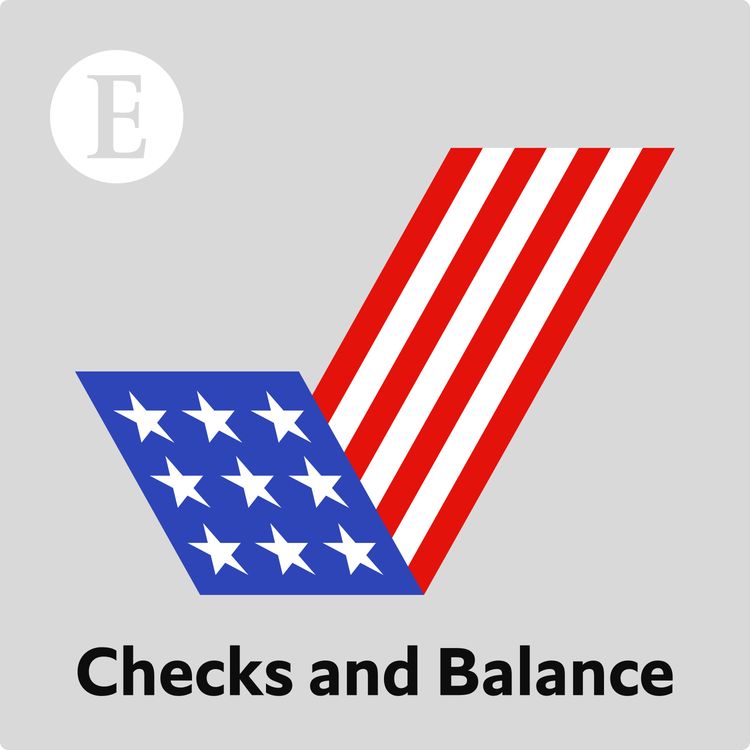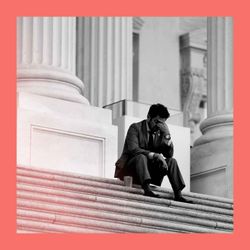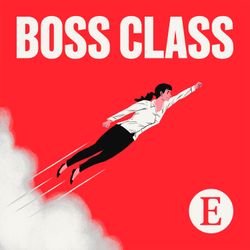Share

Checks and Balance from The Economist
Checks and Balance: The heat is on
It’s hot. Over the past month millions of Americans have been sweltering in fierce temperatures. Around a third of the population lives in places where the government has recently issued warnings about extreme heat. How can American cities prepare for an even hotter future?
The Economist’s Oliver Morton tells us what causes heat waves. Jeff Goodell, author of “The Heat Will Kill You First”, charts how the invention of air conditioning changed the locus of political power in America. And David Hondula, Phoenix’s Chief Heat Officer, describes how his city is preparing for a future of scorching summers.
John Prideaux hosts with Idrees Kahloon and Aryn Braun.
You can now find every episode of Checks and Balance in one place and sign up to our weekly newsletter. For full access to print, digital and audio editions, as well as exclusive live events, subscribe to The Economist at economist.com/uspod.
More episodes
View all episodes

Donald Trump readies for war, again
45:25|The isolationist-in-chief has sent two aircraft carriers to waters near Iran. The moves may intimidate Iranian leadership to make concessions on its nuclear program. But is there a diplomatic off ramp? Trump hasn’t told America his goals; are he and the country ready for another war? Guests and hosts:Charlotte Howard, New York bureau chief, host of ‘Checks and Balance”James Bennet, Lexington columnistJon Fasman, senior culture correspondent, former Washington correspondentShashank Joshi, defence editor Gregg Carlstrom, Middle East correspondentTopics covered:America’s military buildup near IranIran nuclear deal 12 day Israel-Iran warTranscripts of our podcasts are available via economist.com/podcastsListen to what matters most, from global politics and business to science and technology—subscribe to Economist Podcasts+ For more information about how to access Economist Podcasts+, please visit our FAQs page or watch our video explaining how to link your account.
319. Why Congress just isn’t any fun
45:34||Ep. 319America’s legislature is ineffective, and unsatisfying for the people serving in it. A record number of lawmakers will leave and never return at the end of this term. Congressional leadership has taken over the writing of bills. And fundraising consumes the rank and file’s time. So who still wants the job? And what can make Congress effective again?Guests and hosts: Jon Fasman, senior culture correspondent, former Washington correspondentJames Bennet, Lexington columnist, co-host of Checks and BalanceSamuel Beal, Washington correspondentPaul Begala, former adviser to President Bill ClintonTopics covered: CongressTax Reform Act of 1986Political polarisationTranscripts of our podcasts are available via economist.com/podcastsListen to what matters most, from global politics and business to science and technology—subscribe to Economist Podcasts+ For more information about how to access Economist Podcasts+, please visit our FAQs page or watch our video explaining how to link your account.
318. MAHA’s first annual checkup
45:11||Ep. 318Health Secretary Robert F. Kennedy Jr. has been in office for one year. He’s introduced a double-dose of scientific skepticism, but has he made America healthy again? He promised in his confirmation hearing to do just that. What’s the long term prognosis for trust in American health institutions?Guests and hosts: Charlotte Howard, New York bureau chief, co-host of Checks and BalanceJames Bennet, Lexington columnist, co-host of Checks and BalanceStevie Hertz, US policy correspondentLarry Levitt, executive vice president KFFDaniella Raz, US correspondent Topics covered: What’s changed in RFK’s first yearRising insurance premiums and vaccine skepticismThe political effect of RFK’s health policiesTranscripts of our podcasts are available via economist.com/podcastsListen to what matters most, from global politics and business to science and technology—subscribe to Economist Podcasts+ For more information about how to access Economist Podcasts+, please visit our FAQs page or watch our video explaining how to link your account.
317. All in: America bets on prediction markets
48:28||Ep. 317Americans will bet upwards of an estimated $2 billion on the Super Bowl. It’s the biggest betting day of the year, but since the Supreme Court authorised sports betting in 2018, Americans have taken to gambling year round. And now, on prediction markets, they’re wagering on politics too.Charlotte Howard hosts with James Bennet and Dan RosenheckTranscripts of our podcasts are available via economist.com/podcastsListen to what matters most, from global politics and business to science and technology—subscribe to Economist Podcasts+ For more information about how to access Economist Podcasts+, please visit our FAQs page or watch our video explaining how to link your account.
316. Blocks of ICE: the fallout from Trump’s deportation agenda
47:28||Ep. 316The White House has shaken up its immigration ranks in Minnesota. But whatever the outcome there, ICE has become a gargantuan operation that operates with scant oversight (not unlike the FBI long ago). We ask how the events in Minneapolis have shifted popular perception of the administration’s agenda, and whether other branches of government might at last act to constrain it.Charlotte Howard hosts with Steve Coll and James Bennet.Transcripts of our podcasts are available via economist.com/podcastsListen to what matters most, from global politics and business to science and technology—subscribe to Economist Podcasts+ For more information about how to access Economist Podcasts+, please visit our FAQs page or watch our video explaining how to link your account.
Trailer: Boss Class Season 3
02:18|AI is changing how we work. It's turning us all into managers. Be a good one.The Economist’s management columnist, Andrew Palmer, takes on the bots in the third season of Boss Class. From cloning to coding, agents to entry-level jobs, he tackles the threat head on and figures out how to turn anxiety into opportunity. Along the way he meets bulls and bears and the people who can help you to master management in the age of AI.Full Season 3 out 29th January 2026.To listen to the full series, subscribe to Economist Podcasts+.https://subscribenow.economist.com/podcasts-plusIf you’re already a subscriber to The Economist, you have full access to all our shows as part of your subscription. For more information about how to access Economist Podcasts+, please visit our FAQs page or watch our video explaining how to link your account.
315. Minnesota ICE: crackdown in the Twin Cities
46:55||Ep. 315Most people reckon Minnesota’s immigrant population is smaller than Texas’s or Florida’s. But those two states, which voted for Donald Trump in 2024, have been spared the large-scale immigration crackdown that’s fallen on Minnesota. Weeks after an ICE agent killed a demonstrator, tensions remain high. Will the White House de-escalate?Charlotte Howard hosts with James Bennet.Transcripts of our podcasts are available via economist.com/podcastsListen to what matters most, from global politics and business to science and technology—subscribe to Economist Podcasts+ For more information about how to access Economist Podcasts+, please visit our FAQs page or watch our video explaining how to link your account.
314. Cheap shots: the political fight over rising prices
46:33||Ep. 314President Trump has called affordability a hoax. Democrats are planning to hammer the theme ahead of the midterm elections. But the data show the problem is not as real as people think. Which party can gain the advantage in a fight over perceptions?John Prideaux hosts with Charlotte Howard and James Bennet.Transcripts of our podcasts are available via economist.com/podcastsListen to what matters most, from global politics and business to science and technology—subscribe to Economist Podcasts+ For more information about how to access Economist Podcasts+, please visit our FAQs page or watch our video explaining how to link your account.
313. Crude behaviour: Trump’s Venezuelan adventure
49:15||Ep. 313America’s capture of Venezuelan dictator Nicolas Maduro is the clearest example yet of the emerging “Donroe doctrine”. It’s not about promoting democracy. Instead, it’s about dominance and grabbing resources. What are the costs of a short-term win? John Prideaux hosts with Charlotte Howard and James Bennet.Transcripts of our podcasts are available via economist.com/podcastsListen to what matters most, from global politics and business to science and technology—subscribe to Economist Podcasts+ For more information about how to access Economist Podcasts+, please visit our FAQs page or watch our video explaining how to link your account.